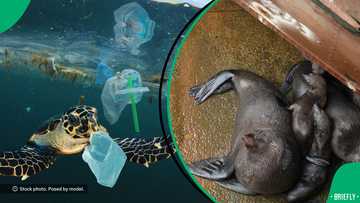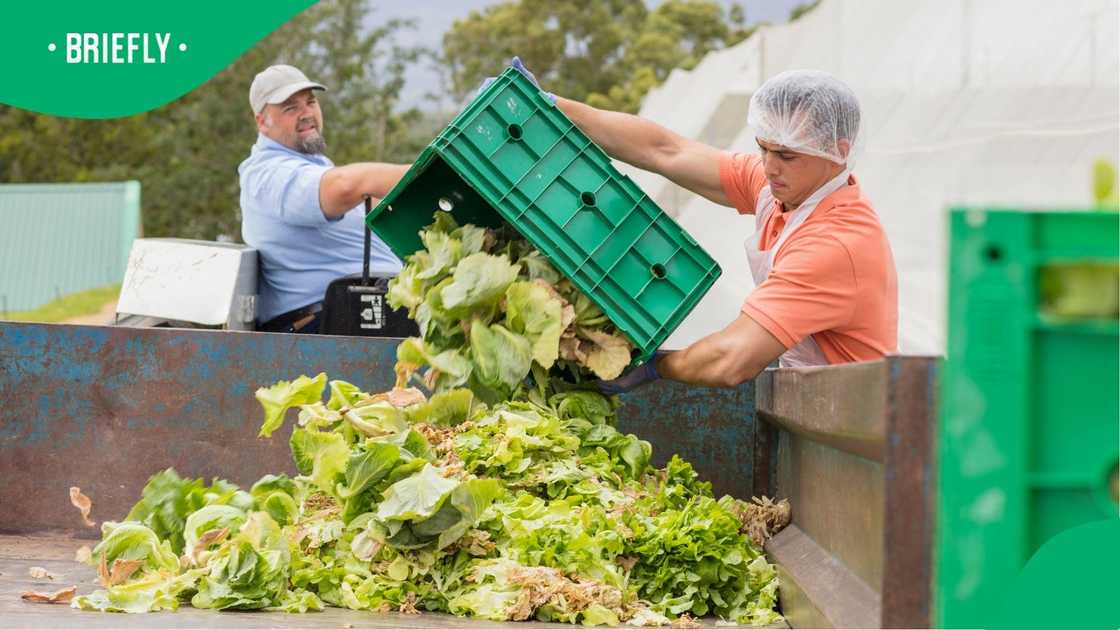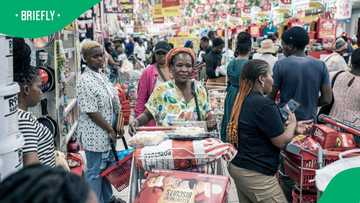Why Food Systems Must Be at the Centre of the Climate Crisis Fight
- South Africa wastes 10 million tons of food annually, releasing potent methane gas into the atmosphere
- SA Harvest's logistics model rescued 329 tons of food and prevented 322 tonnes of CO₂ emissions
- The organisation sees food as a catalyst for circular community impact, from nutrition to recycling and education.
- Briefly News spoke to Ozzy Nel, COO of SA Harvest, about why food systems need to take centre stage in the climate change fight
Today, 5 June, marks World Environment Day, and this year, SA Harvest is urging South Africans to focus on a silent climate culprit, food waste.

Source: Original
The food rescue non-profit is calling for food systems to take centre stage in climate policy, arguing the sector has long been ignored despite being responsible for over a third of global greenhouse gas emissions.
“Food systems are deeply embedded in our lives but exist in silos, disconnected from climate conversations. By placing them at the centre, we can tackle hunger, sustainability, and environmental justice together,” Ozzy Nel said.

Read also
"The future that our children will inherit": Experts call for action to save oceans on World Oceans Day
A wasted opportunity
South Africa dumps more than 10 million tons of food each year. According to SA Harvest, the environmental fallout is severe and underestimated.
PAY ATTENTION: stay informed and follow us on Google News!
“Rotting food in landfills releases methane, a greenhouse gas over 80 times more potent than CO₂. It’s not just about wasted food, it's wasted water, land, energy, and fuel. Each ton carries the carbon footprint of its full supply chain.”
Rethinking Hunger Relief
Far from a traditional charity, SA Harvest describes itself as a ‘logistics disruptor’. It uses smart tech, cold-chain systems, and real-time data to intercept surplus food before it hits landfills and deliver it to communities in need.
Instead of expanding its own delivery fleet, the organisation has partnered with commercial logistics firms, using empty return trips to transport rescued food, cutting both costs and emissions.
One such partnership, with Vector Logistics, helped rescue 329 tons of food and avoid 322 tons of CO₂ emissions.
Beyond rescue: Building resilience
The group insists its work is about more than temporary relief. It has built a dehydration plant to preserve fresh surplus food and partnered with communities to establish vertical greenhouses for growing crops like spinach and carrots.
These projects are coupled with education programmes for children and youth on nutrition and sustainability.
Closing the loop
Through a partnership with recycling startup Regenize, SA Harvest has also helped roll out recycling-for-rewards programmes in communities where food insecurity and waste management intersect.
“We enable other initiatives to scale by tapping into our trusted grassroots networks. “It’s a circular model, where trust leads to shared impact,” Nel explained.

Source: Getty Images
Real change needs real collaboration
Since its founding in 2019, SA Harvest says it has grown by building a national logistics and community ecosystem, not by competing, but by collaborating.
On World Environment Day, their message is clear:
“Government, business, and civil society must align their strengths. Food may be the entry point, but the goal is far bigger, resilient, inclusive systems that fight hunger and climate change at once.”
3 More stories about climate change
- Briefly News also reported that food waste is not a crisis of scarcity, but of distribution. The environmental fallout of this imbalance includes wasted water, energy, land, and logistics – a silent climate threat hidden in plain sight.
- Schools in KwaZulu-Natal were celebrated for their eco-friendly efforts at the Sustainable Schools Regional Rewards Ceremony.
- G7 allies meet this week for climate talks that are likely to urge more action in a "critical decade", but could also lay bare divisions on ambitious fossil fuel commitments.
Disclaimer: The views and opinions expressed here are those of the author and do not necessarily reflect the official policy or position of Briefly News.
PAY ATTENTION: Follow Briefly News on Twitter and never miss the hottest topics! Find us at @brieflyza!
Source: Briefly News



